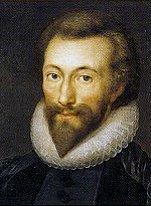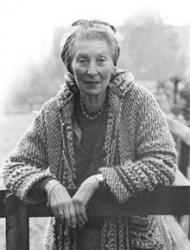Planning worship?
Check out our sister site, ZeteoSearch.org,
for 20+ additional resources related to your search.
- |
User Links
Person Results
Frederick C. Maker
1844 - 1927 Person Name: Frederick Charles Maker, 1844-1927 Meter: 10.10.10.10.8.4 Composer of "ZENNOR" in The Cyber Hymnal Frederick C. Maker (b. Bristol, England, August 6, 1844; d. January 1, 1927) received his early musical training as a chorister at Bristol Cathedral, England. He pursued a career as organist and choirmaster—most of it spent in Methodist and Congregational churches in Bristol. His longest tenure was at Redland Park Congregational Church, where he was organist from 1882-1910. Maker also conducted the Bristol Free Church Choir Association and was a long-time visiting professor of music at Clifton College. He wrote hymn tunes, anthems, and a cantata, Moses in the Bulrushes.
Bert Polman
Frederick C. Maker
Johann Sebastian Bach

1685 - 1750 Person Name: Johann Sebastian Bach, 1685-1750 Meter: 10.10.10.10.8.4 Harmonizer of "SO GIEBST DU NUN" in The Hymnal 1982 Johann Sebastian Bach was born at Eisenach into a musical family and in a town steeped in Reformation history, he received early musical training from his father and older brother, and elementary education in the classical school Luther had earlier attended.
Throughout his life he made extraordinary efforts to learn from other musicians. At 15 he walked to Lüneburg to work as a chorister and study at the convent school of St. Michael. From there he walked 30 miles to Hamburg to hear Johann Reinken, and 60 miles to Celle to become familiar with French composition and performance traditions. Once he obtained a month's leave from his job to hear Buxtehude, but stayed nearly four months. He arranged compositions from Vivaldi and other Italian masters. His own compositions spanned almost every musical form then known (Opera was the notable exception).
In his own time, Bach was highly regarded as organist and teacher, his compositions being circulated as models of contrapuntal technique. Four of his children achieved careers as composers; Haydn, Mozart, Beethoven, Mendelssohn, Schumann, Brahms, and Chopin are only a few of the best known of the musicians that confessed a major debt to Bach's work in their own musical development. Mendelssohn began re-introducing Bach's music into the concert repertoire, where it has come to attract admiration and even veneration for its own sake.
After 20 years of successful work in several posts, Bach became cantor of the Thomas-schule in Leipzig, and remained there for the remaining 27 years of his life, concentrating on church music for the Lutheran service: over 200 cantatas, four passion settings, a Mass, and hundreds of chorale settings, harmonizations, preludes, and arrangements. He edited the tunes for Schemelli's Musicalisches Gesangbuch, contributing 16 original tunes. His choral harmonizations remain a staple for studies of composition and harmony. Additional melodies from his works have been adapted as hymn tunes.
--John Julian, Dictionary of Hymnology (1907)
Johann Sebastian Bach
John Donne

1573 - 1631 Person Name: John Donne, 1573-1631 Meter: 10.10.10.10.8.4 Author of "Wilt thou forgive that sin, where I begun" in The Hymnal 1982 Donne, John, D.D., born in London, 1573, and educated as a Roman Catholic, but at the age of nineteen he embraced Anglicanism. He acted for some time as Secretary to Lord Chancellor Ellesmere. At the desire of King James he took Holy Orders, and rising to great fame as a preacher, had the offer of fourteen livings during the first year of his ministry. He was chosen, in 1617, preacher at Lincoln's Inn. In 1621 he became Dean of St. Paul's, and soon afterwards Vicar of St. Dunstan's in the West. Died in 1631, and was buried in St. Paul's. His work as a Poet and Divine is set forth by I. Walton in his Lives, He was the author of the plaintive hymn, "Wilt Thou forgive," &c. (q. v.). Donne's Poems (1633) have been recently edited in an admirable manner by the Rev. Dr. Grosart in his Fuller Worthies Library, where for the first time is printed a full and complete edition of the Poems.
-- John Julian, Dictionary of Hymnology (1907)
John Donne
Roy Frederic Kehl
1935 - 2011 Person Name: R. F. Kehl, b. 1935 Meter: 10.10.10.10.8.4 Composer (inner voices) of "DONNE" in Evangelical Lutheran Hymnary Born in St. Louis, Missouri, November 22, 1935. Died in Evanston, Illinois, February 12, 2011. A renowned organist and philanthropist, he served on the Hymn Music Committee during the compilation and editing of the Episcopal Church's Hymnal 1982.
Obituary, Chicago Tribune
Roy Frederic Kehl
John Hilton
1599 - 1657 Person Name: John Hilton, 1599-1657 Meter: 10.10.10.10.8.4 Composer (melody and bass) of "DONNE" in The Hymnal 1982
John Hilton
Marie J. Post
1919 - 1990 Meter: 10.10.10.10.8.4 Versifier of "O LORD My God, from You Alone Comes Aid" in Psalter Hymnal (Gray) Marie (Tuinstra) Post (b. Jenison, MI, 1919; d. Grand Rapids, MI, 1990) While attending Dutch church services as a child, Post was first introduced to the Genevan psalms, which influenced her later writings. She attended Calvin College, Grand Rapids, Michigan, where she studied with Henry Zylstra. From 1940 to 1942 she taught at the Muskegon Christian Junior High School. For over thirty years Post wrote poetry for the Grand Rapids Press and various church periodicals. She gave many readings of her poetry in churches and schools and has been published in a number of journals and poetry anthologies. Two important collections of her poems are I Never Visited an Artist Before (1977) and the posthumous Sandals, Sails, and Saints (1993). A member of the 1987 Psalter Hymnal Revision Committee, Post was a significant contributor to its array of original texts and paraphrases.
Bert Polman
Marie J. Post
Elizabeth Poston

1905 - 1987 Person Name: Elizabeth Poston, b. 1905 Meter: 10.10.10.10.8.4 Harmonizer of "DONNE" in The Hymnal 1982 Elizabeth Poston (24 October 1905 – 18 March 1987) was an English composer, pianist, and writer.
See more in:
Wikipedia
Elizabeth Poston
Hiram O. Wiley
1831 - 1873 Meter: 10.10.10.10.8.4 Author of "He Leads Us On" in The Cyber Hymnal Wiley, Hiram Ozias. (Middlebury, Vermont, May 20, 1831--January 28, 1873, Peabody [Danvers], Massachusetts). He was a Unitarian layman who practiced law in Peabody from 1855 until his death, and was the author of occasional verse contributed to local newspapers. On May 17, 1865, the South Danvers Wizard published his hymn beginning "He leads us on by paths we did not know," and republished it on May 8, 1867, with a note reading:
Some years ago we published the following poem, which was written for our columns by H.O. Wiley, Esq. Since then it has traverse the country in all directions, without any credit being given either to our paper or to the author. We reproduce it from a Western paper in order to correct several errors that have crept into it. Ed.
It is the only hymn included in the small volume of Wiley's poems published as a memorial to him soon after his death. Its earliest appearance in a hymn book was in the 1873 Supp. to the Unitarian Sunday School Hymn Book, with the first line changed to "God leads us on," etc.
About the same time it reached England, where it passed into a number of collections without the name of the author. In Julian's Dictionary, p. 1647, "J.M" states that it appears as "Anon." in Our Home Beyond the Tide (Glasgow, 1878), and that in Meth. Free. Ch. Hys. (1889), it is attributed to "Count Zinzendorf, about 1750. Tr. H.L.L." (Jane Borthwick) although that attribution is questioned because the hymn could not be found in any of Miss Borthwick's translations. the mistake attribution persisted, however, long enough to be included in the second edition of the Pilgrim Hymnal, in the first decade of this century. Since then the hymn has passed, in its original form and rightly attributed to Wiley, into various other collections, among them the New Hymn and Tune Book (1914), and Hymns of the Spirit (1937).
--Henry Wilder Foote, DNAH Archives
Hiram O. Wiley


 My Starred Hymns
My Starred Hymns


